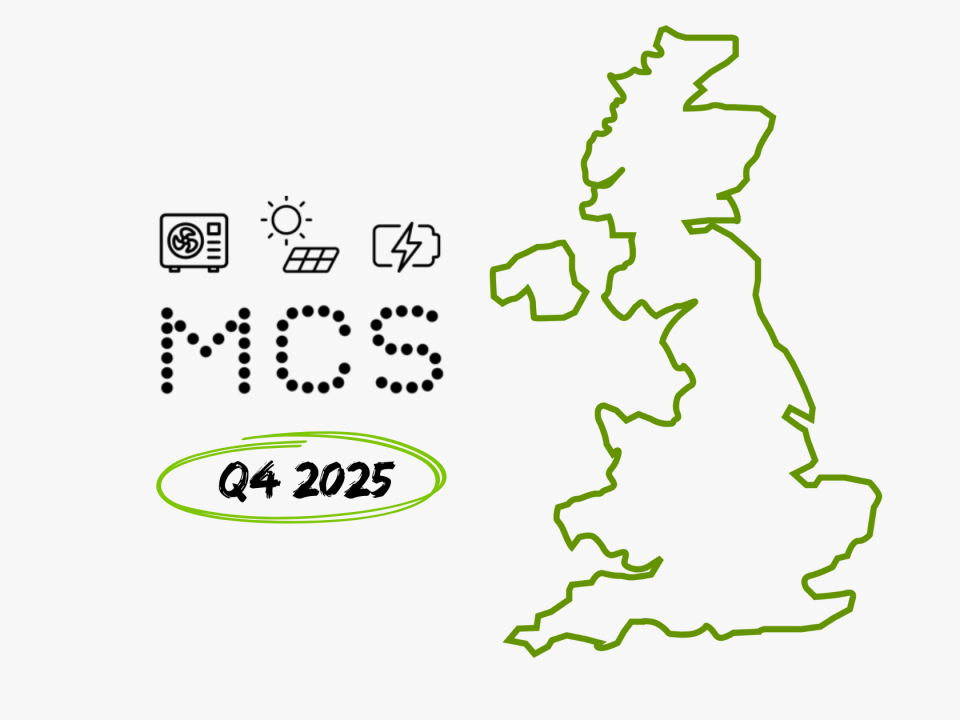
Our Two Pence On The Election In Relation to Renewable Energy & Net Zero
June 12, 2024
Key Drivers in the Continued Growth of Renewable Energy
June 27, 2024It has been long debated whether Low Temperature Hot Water training should be made mandatory for heating engineers, and subsequently those looking to transition into the renewable heating space (aka heat pumps.) It seems that we finally have some news on this, with the government acknowledging the potential benefit of the proposed mandated approach. In todays blog, we will look at what this would mean for the future of heat pump installations in the UK.
Some Background:
First some background on the topic. Traditional domestic heating systems tend to run at temperatures between 65 – 80°c, and the aim of the new Part L is to achieve a maximum flow temperature of 55°c for all newly installed “wet” central heating systems. For existing systems where a boiler is being replaced like for like, then the engineer should target to reduce the flow temperature to as low as possible.
Lowering the maximum flow temperature has a number of benefits including consumer comfort, reduced system corrosion, maintaining condensing mode in boilers and improving the overall system efficiency.
One of the technologies that benefits from targeting low flow temperatures is of course heat pumps, due to the way they produce heat from the air, ground or water, all of which are at a lower temperature than other traditional heating systems.
Reducing the flow temperature as low as possible for Heat Pumps will reduce electrical consumption and increase the SCOP values of these systems. However, careful design of the systems emitter circuits, underfloor heating or radiators, all needs to be considered and calculated to maintain overall consumer comfort.
The above demonstrates the importance of LTHW and is why we have continued to cover the topic in our courses, despite it not being a governed requirement. The remainder of this blog will examine the stakeholders, and their opinion on the subject.
The Government’s Consensus:
In typical government fashion, it has taken some time for the above to be addressed, and organisations such as The CIPHE have been left hanging. There are courses out there, one of which is available at our training centre (as we will discuss in the final section of this blog) but with them not yet being an essential pre requisite, very few are taking them. As always, installers need clear guidance and direction from the government to commit to the renewable route, which is completely understandable. However, the government has finally commented on the topic, and does in fact intend to march on with making Low Temperature Hot Water training essential. As we all know, saying and doing are two very different things, and although many in the industry are happy to receive the governments approval, more needs to be done to actually implement this change, and funding would be the first port of call.
What Are Your Thoughts?
It is all well and good bigger organisations and the government agreeing that this is a good idea, but what do you think? We can see both sides of the argument, with the mandated approach potentially meaning many installers would have to re-train, but we also think that in order to meet the heat pump installation targets (of 600,000 by 2030) and these to be carried out at a sufficient level, LTHW training is needed. If the government was to continue down the path of making it mandatory, it is imperative that it’s made easy for engineers to re-train if necessary, without any disruption to work or additional costs to bear.
Implications for Heat Pump Installations:
You might be wondering how the above would actually help reach the heat pump installation targets, and this would be a fair question. Making LTHW mandatory would improve the quality of installs, and also provide an additional level of learning for heating engineers before undertaking any heat pump courses, which will in turn increase their confidence in installing heat pumps (particularly in relation to the design element.) This should therefore increase the amount of heating engineers who are prepared to fully commit to the renewable switch. We will see how this unfolds in the coming months, and the election will of course have an impact on the implementation and rollout of this. This is something we will be keeping a close eye on, and will be reporting as always to our free news page.
Doing our Bit:
As previously mentioned, at GRE we are big advocates for the importance of Low Temperature Hot Water training before undertaking any heat pump installations, and is why we offer the BPEC Low Temperature Hot Water course. Our heat pump trainer Dean also implements some basic LTHW design theory within his courses, thus giving installers some base knowledge and understanding of the topic. Our BPEC Heat Pumps courses all look at the design, installation, and maintenance of the system, thus ensuring the quality of installation made by the trainee is of the highest possible standard. If the above was made mandatory, we are prepared at GRE… are you?
To view all of our Heat Pump related courses, click here.
Co written by Anthony Holmes and Dean Wagstaff
References:
CIPHE. (n.d.). CIPHE. https://www.ciphe.org.uk/professional/




